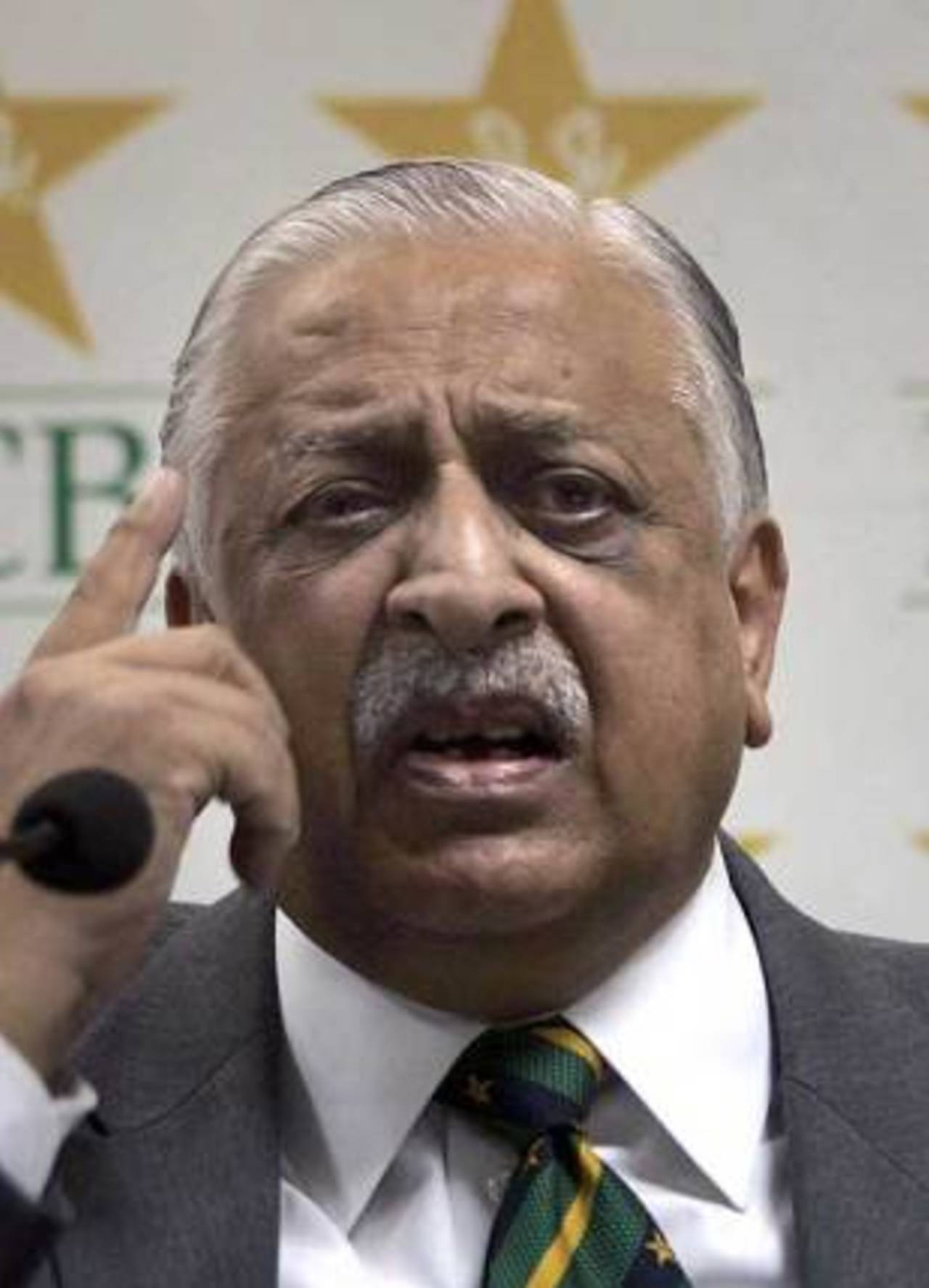Few boards had as much riding on the ICC's annual conference in Hong Kong as the PCB. A change to the rotational policy of appointing ICC presidents would have deprived them of a potential nomination for 2014. The Pakistan Task Team's (PTT) first report was due to be released, a state of affairs report on the game in the country after a period of extreme turbulence. The proposed constitutional amendment to remove government interference from boards and introduce elections was also under discussion, an amendment which pushes far-reaching, but difficult changes on to the PCB.
The meeting was also held against a backdrop in which increasingly over the last couple of years the PCB has found itself isolated in boardroom matters. They have had few allies, and an ongoing cold war with the BCCI has been particularly damaging on and off the field.
In this context then, the results of the five-day meeting are not as bad as they could have been for the board. "The meeting has gone extremely well for us," Ijaz Butt, chairman PCB, told ESPNcricinfo. "There were a couple of main issues for us and we are happy with the developments on those."
A more reasoned assessment came from Subhan Ahmed, the board's chief operating officer. "It was a reasonably good meeting for us," he told ESPNcricinfo. "We obviously didn't achieve 100% of our objectives but overall the meetings went well for us."
The
deferment of the change to the rotational policy of appointing presidents was, according to one member of Pakistan's delegation, "a big victory" and built on "hectic corridor diplomacy". Officials were surprised with the support they found among Full and Associate members; three other Full Members backed Pakistan' opposition to the change, on the "principled basis that every country should have a right to appoint a president", according to the official. The deferment, the official believes, is as good as it being struck off the agenda entirely, which means that Pakistan and Bangladesh are expected to put up their nomination by December 31 this year.
The PTT report has also, according to Ahmed, expressed its satisfaction with the work the board has put in, particularly on the integrity issues that arose in the aftermath of the spot-fixing scandal last summer. "They've appreciated the work we have put in to accomplish the tasks they had
set us last October," Ahmed said. "That integrity chapter of the PTT and PCB is now concluded."
But the body was set up before the spot-fixing scandal, in January 2009, to help Pakistan combat the lack of international cricket in the country; following the Lahore terror attacks in March that year the body's mandate grew and over the last year it has taken on governance issues as well. The report has made 63 recommendations on a whole host of matters, macro and micro.
For example, the PTT has recommended constitutional changes to the board to make it more democratic - a recommendation that now overlaps with the ICC's governance amendments. But the PTT has also suggested that the board should appoint a long-term manager instead of on a series-by-series basis. Some of these are likely to not go down too well with the board. Butt said some had gone "beyond the mandate" originally intended for the body. "We will now go back and look at the recommendations that have been made, review them and give our feedback to the PTT. We have some observations on the recommendations," Ahmed said. It is believed - and the board sought to clarify this - that the recommendations are just that at the moment, and not directives or binding in any way.
The trickiest issue on the agenda was the ICC's
proposed constitutional amendment, which called for the removal of government interference from cricket boards and the holding of elections for senior officials. The PCB's patron-in-chief is the president of the country - in theory a non-political post, anything but in reality and historically - and he appoints the board chairman. There are no elections either and failure to make the changes could result in suspension.
Here victory is a relative one, for the ICC has gone ahead and implemented the proposed changes - despite the threat of legal action by the PCB - but has given them, effectively, two years and possibly more to do this. That, too, came from meetings Butt, Ahmed and the PCB's legal advisor Taffazul Rizvi had with the ICC in Dubai in the run-up to the AGM. "We had discussions with the ICC about this before the meetings and it was there we agreed to set this deadline and that is what has been decided here," Butt said.
Even the results of the FTP negotiations are not as bad as initially expected. Between now and April 2020, Pakistan have 88 Tests scheduled which is considerably lower than the big guns of England, Australia and India but alongside Sri Lanka (88) and ahead of West Indies (84), South Africa (82) and New Zealand (80). This, officials said, was the result of increased efforts over the last year with other boards, an indication that relations with a few members might be improving, albeit tentatively.
In March 2012, they are even scheduled to tour India and getting that inked into the FTP is being considered an achievement by the board. If political relations improve, there could be more tours which will add considerably to Pakistan's schedule.
